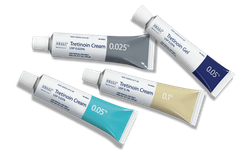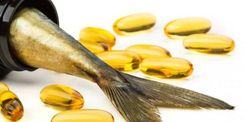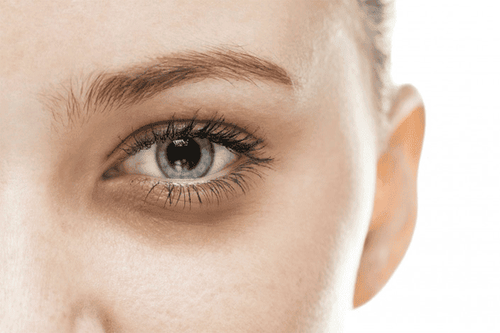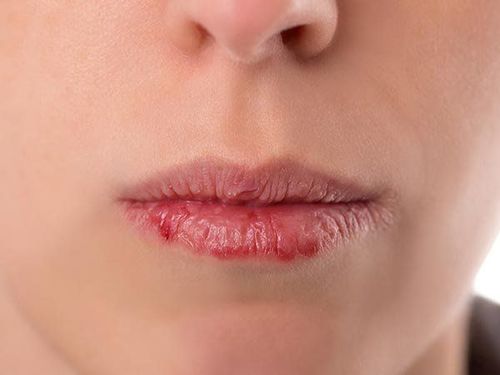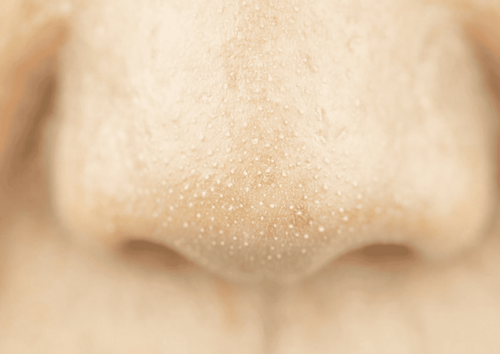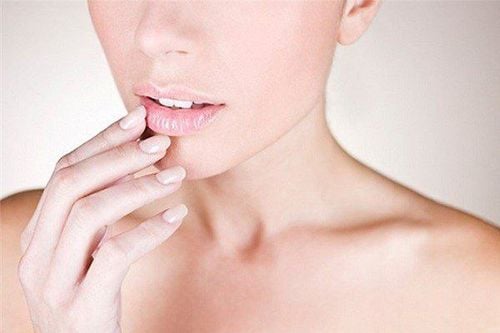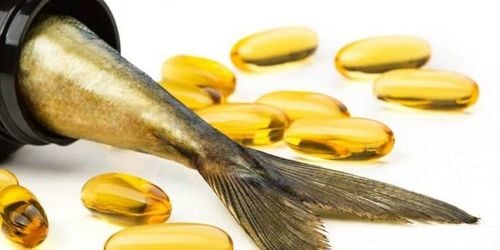Swollen lips after waking up might be a serious health issue, especially if you are not experiencing illnesses in the mouth. So, what are swollen lips after waking up, and how does it affect your health?
1. Causes of swollen lips after waking up
Waking up with swollen lips is often attributed to inflammation or fluid accumulation in the soft tissues. Identifying the cause of swollen lips may require a comprehensive evaluation; however, in most cases, the underlying etiology can be determined relatively easily.
1.1. Allergic reaction
Allergic reactions to certain foods, medications, or insect bites/stings are common causes of swollen lips and associated symptoms.
1.1.1. Food Allergies
Certain foods are well-known triggers for allergic reactions, leading to lip swelling and other symptoms. These include:
- Milk
- Eggs
- Peanuts
- Other nuts
- Crustacean shellfish
- Fish
- Soy
- Wheat
Spices can also provoke allergic or sensitivity reactions. For instance, hot peppers may cause oral burning and lip swelling due to capsaicin, but even milder spices can induce allergic responses, such as:
- Star anise
- Celery
- Coriander
- Dill
1.1.2. Medication Allergies
Drug-induced allergic reactions are another potential cause of swollen lips upon waking. Penicillin and other antibiotics are among the most common culprits.
1.1.3. Clinical Presentation
Mild Allergic Reactions:
- Rash
- Itching
Moderate to Severe Reactions:
- Urticaria (hives)
- Coughing
- Wheezing
- Angioedema: Swelling of the deeper layers of the skin, particularly the face, lips, tongue, and periorbital areas.
Anaphylaxis: The most severe and life-threatening allergic reaction, characterized by:
- Airway edema (swelling of the tongue, lips, and airways)
- Chest tightness
- Respiratory distress
Anaphylaxis progresses rapidly, particularly in individuals with severe hypersensitivity, and often occurs immediately after ingestion of allergens or administration of allergenic medications.
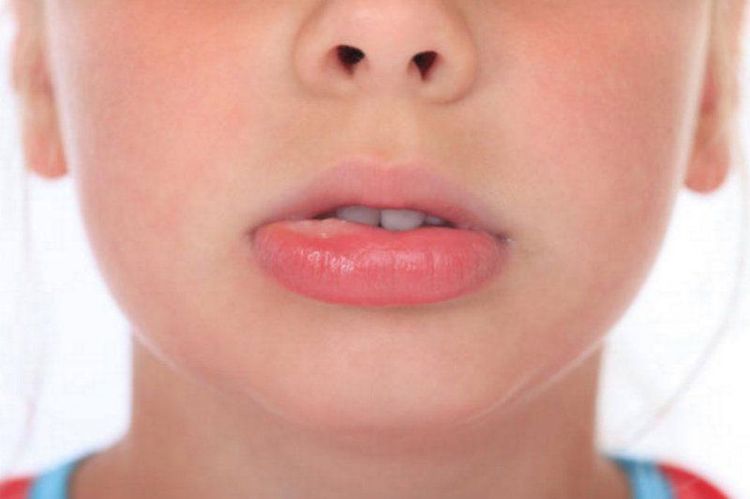
1.2. Skin conditions and infections
A pimple on or near the lips can cause temporary swelling of the lips. Severe swelling can occur with cystic acne, a severe form of acne that can cause boil-like lesions anywhere on the body.
Cold sores, herpes infections, and coxsackievirus blisters around the mouth can also cause swollen lips. These changes are symptoms of a virus and can appear overnight, even though the virus has been in the body for some time.
If you have been in the sun all day without proper protection, your lips can get severely sunburned, and symptoms such as swollen, chapped lips can develop. The effects of sunburn on the lips and elsewhere usually subside within a few days.
A common bacterial skin infection called cellulitis can cause swollen lips or swelling anywhere on the body if it becomes infected.
1.3. Muscle and nerve causes
Various medical conditions that affect the nerves and muscles in the face can also cause swollen lips after waking up or similar symptoms.
Dystonia can affect trumpeters and other musicians who spend hours pursing their lips while playing an instrument. The closed position of the mouth when playing a wind or brass instrument causes tension in the mouth muscles, which can cause swelling and numbness of the lips.
In addition, Melkersson-Rosenthal syndrome is a rare neurological condition that causes swelling of the lips and face as well as paralysis of specific muscles. The attacks can occur days or years apart. These attacks usually begin in childhood or adolescence. The cause of Melkersson-Rosenthal syndrome is not well understood, but it is thought to be genetic.
1.4. Dental Problems
Dental problems such as braces and other treatments can cause swollen lips the day after work. Infections of the mouth or gums can also cause swollen lips and inflammation inside the mouth.
Lip cancer, although uncommon, can also cause swelling. However, lip cancer usually first appears as a sore on the outside or inside of the lip.
1.5. Trauma
Direct injury to the lip can cause swelling and may develop slowly overnight. Injuries include cuts, scrapes, and bruises.
You can accidentally injure your lip by biting or chewing on it without realizing it. Additionally, sleeping in an uncomfortable position or against a hard surface can put pressure on the lip, causing temporary swelling while you sleep.
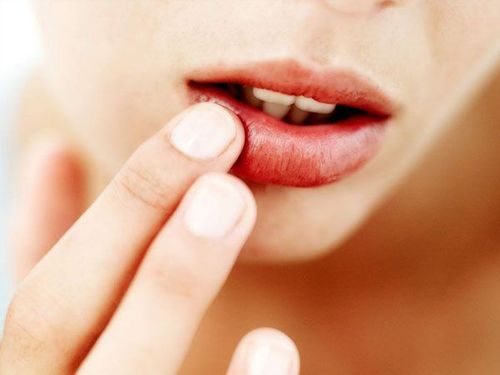
2. Comparison of Upper Lip vs. Lower Lip Swelling
When lip swelling results from trauma—such as a blow, cut, or blunt force—the lip that absorbs the majority of the impact will exhibit more significant swelling.
Certain medical conditions preferentially affect one lip over the other:
- Melkersson-Rosenthal Syndrome: This condition often causes upper lip swelling more than the lower lip.
- Post-Dental Procedures: If local anesthesia is administered to the lower lip for dental work, the lower lip will typically swell temporarily, often peaking the following day. Cheilitis: A rare inflammatory disorder that primarily affects the lower lip. Cheilitis is more prevalent in adult males and can be associated with lip carcinoma (lip cancer).
3. Swelling on One Side of the Mouth
Unilateral lip swelling (affecting only one side of the mouth) can be caused by:
- Trauma to the affected area.
- The presence of a cyst, abscess, or tumor localized to that region.
If swelling occurs upon waking, self-examination is essential: Visually inspect and gently palpate the area for abnormalities, such as lumps or tenderness, which may explain the swelling.
Warning Signs of Neurological Conditions
In some cases, unilateral changes to the mouth or lips can indicate more serious conditions:
- Stroke: Signs include facial drooping, excessive drooling, slurred speech, and weakness on one side of the face or body. Stroke is a medical emergency requiring immediate intervention.
- Bell’s Palsy (Peripheral Facial Nerve Palsy): A condition caused by inflammation or damage to the facial nerve (Cranial Nerve VII), resulting in temporary facial muscle paralysis. Symptoms include unilateral facial drooping and difficulty closing the eye or moving the lips on the affected side. Unlike a stroke, Bell’s palsy is not life-threatening and often resolves with supportive care.
4. How to treat swollen lips
4.1. Home Treatments
- Cold Compress: Wrap ice in a clean towel or cloth and apply it gently to the swollen area for 10–15 minutes at a time. Avoid placing ice directly on the skin, as this can cause frostbite or tissue damage.
- Sunburn Management: If swelling is due to sunburn, apply aloe vera gel or lotion to soothe the skin and reduce inflammation. Besides, Hydration and Moisturization: For dry, cracked, or chapped lips, using a gentle, hydrating lip balm can restore moisture and promote healing.
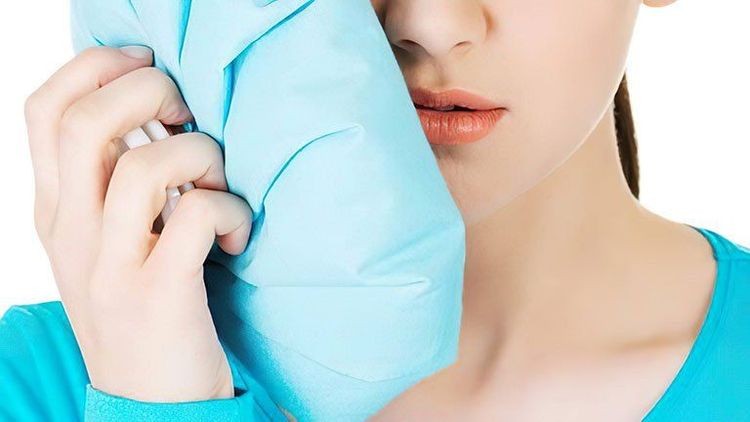
4.2. Treatment at a medical facility
If the swollen lips are caused by inflammation, nonsteroidal anti-inflammatory drugs (NSAIDs) such as ibuprofen or corticosteroids may help relieve symptoms.
NSAIDs are also useful if the lips have been bruised or injured, causing the swelling.
Other neurological conditions (such as focal dystonia) may require more invasive treatments. For dystonia due to embolism, muscle relaxants (such as baclofen) may be helpful.
5. When do people with swollen lips see a doctor?
Severe food allergies can cause more than just swollen lips. If signs of a serious allergic reaction such as wheezing, difficulty breathing, or swelling of the mouth/tongue occur, the person should call the nearest emergency room.
Milder cases such as cystic acne require a visit to a dermatologist to assess the presence of cysts or suspicious growths on or under the surface of the lips. The patient may be referred to a specialist if another condition is suspected.
If the swelling after waking up is mild and there are no other symptoms, the patient should note whether the swelling goes away or persists. If the swelling lasts for more than 24 hours, see a doctor. If there are signs of a severe allergic reaction, the patient should seek emergency medical attention.
If the swelling is unexplained, the patient should review the foods they have eaten and any medications they have taken. Also, check for injures, infections, and any possible exposure to allergens in the surrounding environment.
Additionally, seek emergency medical attention if the person experiences a severe allergic reaction, stroke, swelling of the face/eyes, or infection of the face.
To arrange an appointment, please call HOTLINE or make your reservation directly HERE. Download MyVinmec app to make appointments faster and to manage your bookings easily.
